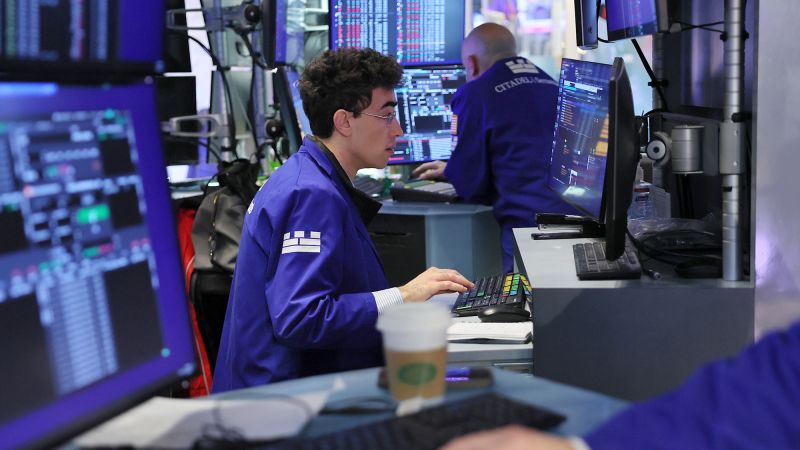US Stock Market Soars Amid Significant Trade Deal with China
The U.S. stock market experienced an impressive rally on Monday, driven by a groundbreaking trade agreement between the United States and China. President Donald Trump’s top trade advisors announced a major reduction in tariffs that some analysts believe could help avert a potential recession in the U.S. This unexpected development sparked a surge in investor confidence, leading to notable gains across all major indexes.
Market Surge: Key Indexes Jump
- The Dow Jones Industrial Average soared by 1,161 points, marking a 2.81% increase.
- The S&P 500 climbed 3.26%, while the tech-dominated Nasdaq Composite surged 4.35%.
- These gains represent the largest single-day increases in over a month for the three major indexes.
Keith Lerner, chief market strategist at Truist Advisory Services, noted that this market rally reflects the optimistic tariff news that caught many investors off guard. "The unexpected positive outcome led to a significant surge," he commented.
Nasdaq’s Remarkable Recovery
The Nasdaq Index, which had fallen into bear market territory earlier this year, rebounded dramatically, closing over 20% above its lowest point, thus marking a transition into a new bull market. Despite the recent gains, the index remains down approximately 3.1% for the year.
Positive Impact of Eased Trade Tensions
The reduction of tariffs has erased the losses incurred since Trump’s controversial announcement on April 2, which introduced a 10% tariff on nearly all imports into the United States. This announcement also triggered retaliatory tariffs from China, creating a trade war that raised concerns about economic repercussions.
Following the recent discussions in Geneva between U.S. officials and their Chinese counterparts, both sides agreed to roll back tariffs by 115 percentage points. While these rates remain higher than pre-Trump levels, they are significantly lower than those that had caused unrest among American businesses and consumers.
Experts Weigh In on Market Dynamics
Jeff Buchbinder, chief equity strategist at LPL Financial, described the outcome as a “big positive surprise,” while Henry Allen of Deutsche Bank emphasized that easing trade tensions reduces global recession risks. He stated, “The market’s resilience is making a downturn less likely.”
The positive sentiment was palpable on Wall Street, with investors displaying a renewed appetite for riskier assets. The U.S. dollar climbed by 1.4%, and oil prices surged, reflecting increased market confidence.
Sector Winners Shine Bright
Certain sectors particularly benefited from the news. Notably, tech stocks rebounded strongly, with major players like Apple rising 6.3% and Amazon increasing by 8.1%. Luxury goods manufacturers also saw significant gains, with LVMH jumping 7%.
Negotiation Insights and Economic Implications
Treasury Secretary Scott Bessent, who played a crucial role in the negotiations, characterized the discussions as tough yet respectful. He pointed out that the U.S. was negotiating from a position of strength, as China relies heavily on American consumers. With China’s economy facing challenges, including a housing crisis and reduced consumer spending, this is not an ideal time for them to engage in a prolonged trade conflict.
Bessent affirmed that this agreement should not be seen as a major policy shift but rather as a necessary pause. He mentioned, “We have moved the tariff level down from 34% to 10%,” indicating a significant change in approach.
Looking Ahead: Strategic Supply Chains and Future Relations
Moving forward, the U.S. aims to diversify its supply chains to minimize reliance on China for critical goods. Bessent highlighted the importance of creating more resilient supply chains, especially for essential items like medicines and technology.
Experts believe this de-escalation could signal a historic turning point in U.S.-China relations, with potential for further cooperation on trade issues. Kevin Hassett, Director of the National Economic Council, emphasized that the recent developments could help mitigate supply disruptions from China.
In conclusion, the recent trade agreement has revitalized investor sentiment and provided a sense of optimism regarding the U.S. economy, as both sides work towards a more stable and cooperative relationship.










